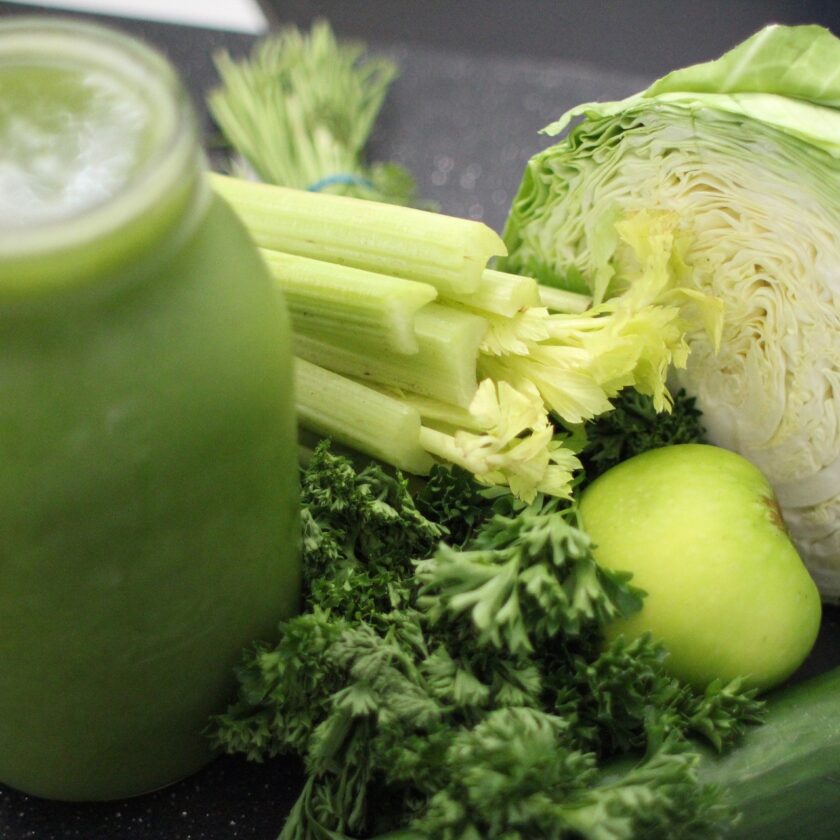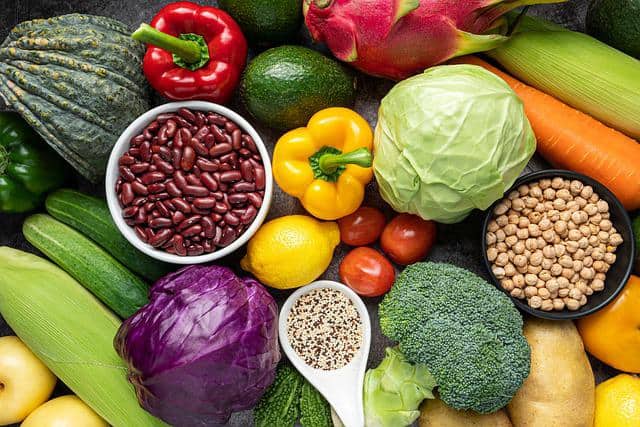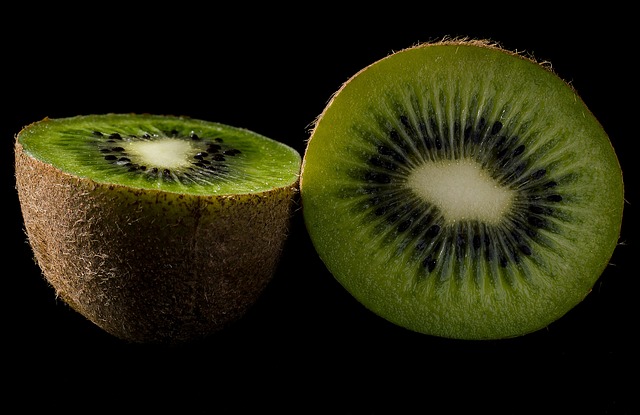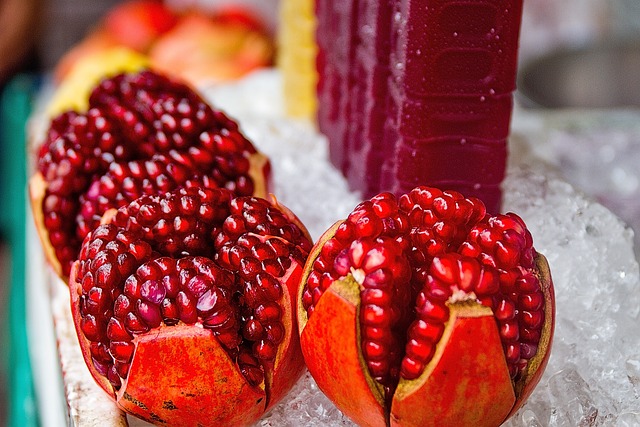When striving for optimal health and well-being, the crucial role of antioxidants cannot be downplayed. contributing to overall health. Whether you follow a vegetarian or non-vegetarian diet, incorporating antioxidant-rich foods is essential for promoting longevity and vitality. In this article, we will explore a variety of foods high in antioxidants, encompassing both vegetarian and non-vegetarian options, along with the numerous health benefits these foods offer.
Vegetarian Foods High in Antioxidants
Berries
Berries such as blueberries, strawberries, and raspberries are packed with antioxidants, including anthocyanins, which contribute to their vibrant colors.
Dark Leafy Greens
Kale, spinach, and Swiss chard are excellent sources of antioxidants, particularly vitamins A, C, and E, along with minerals like selenium.

Nuts and Seeds
Almonds, walnuts, chia seeds, and flaxseeds are rich in antioxidants and provide healthy fats, fiber, and essential nutrients.
Legumes
Beans, lentils, and chickpeas are not only high in protein and fiber but also contain antioxidants like flavonoids and polyphenols.
Colorful Vegetables
Vegetables such as tomatoes, carrots, bell peppers, and sweet potatoes are abundant in antioxidants like beta-carotene and vitamin C.

Whole Grains
Quinoa, brown rice, and oats are antioxidant-rich whole grains that also offer a plethora of vitamins, minerals, and dietary fiber.
Green Tea
Known for its high concentration of catechins, green tea is a powerful antioxidant beverage that supports overall health.
Non-vegetarian foods High in Antioxidants
Salmon
Fatty fish like salmon are rich in astaxanthin, a potent antioxidant that provides numerous health benefits.
Lean Poultry
Chicken and turkey are good sources of selenium, which acts as an antioxidant, supporting the immune system and protecting cells from damage.
Shellfish
Shrimp, crab, and other shellfish contain antioxidants such as astaxanthin and selenium, contributing to their overall health benefits.
Eggs
Eggs, particularly the yolks, contain antioxidants like lutein and zeaxanthin, supporting eye health.

Grass-Fed Meat:
Meat from animals that graze on grass tends to have higher levels of antioxidants, including vitamins C and E.
Fruits and Vegetables High in Antioxidants:
Citrus Fruits
Oranges, lemons, and grapefruits are rich in vitamin C, a powerful antioxidant that supports immune function.
Kiwi

This vibrant fruit is packed with vitamin C, vitamin K, and antioxidants, promoting skin health and immune function.
Apples
Apples contain antioxidants like quercetin, which may contribute to heart health and help reduce inflammation.
Avocado
Rich in glutathione and vitamin E, avocados provide antioxidants that support skin health and combat oxidative stress.
Pomegranate

Pomegranate seeds are loaded with antioxidants, particularly punicalagins and anthocyanins, known for their anti-inflammatory properties.
Benefits of Antioxidants
Cellular Protection
Antioxidants neutralize free radicals, protecting cells from oxidative stress and potential damage.
Heart Health
Antioxidants contribute to cardiovascular health by reducing inflammation and supporting blood vessel function.
Immune Support
Vitamins C and E, along with other antioxidants, play a vital role in supporting a robust immune system.
Skin Radiance
Antioxidants contribute to healthy skin by protecting against UV damage and promoting collagen production.
Cancer Prevention

Some antioxidants have been associated with a lower risk of certain cancers by neutralizing free radicals that may contribute to cancer development.
Anti-Inflammatory Effects
Antioxidants help mitigate inflammation, a factor linked to various chronic diseases.
Role of antioxidants for healthy skin.
Antioxidants play a crucial role in maintaining healthy skin by protecting it from damage caused by free radicals. Free radicals are unstable molecules that can be generated by various environmental factors, such as exposure to UV radiation, pollution, and even the natural process of aging. These free radicals can lead to oxidative stress, which contributes to the breakdown of collagen and elastin, two proteins essential for skin structure and elasticity.
Here are some key reasons why antioxidants are important for healthy skin
Neutralizing Free Radicals
Antioxidants neutralize free radicals by donating electrons, preventing them from damaging cellular structures. This helps to protect the skin from oxidative stress, which can lead to premature aging and other skin issues.
Anti-Aging Benefits
By preventing or reducing oxidative stress, antioxidants can slow down the aging process of the skin. They help to minimize the appearance of fine lines, wrinkles, and other signs of aging, promoting a more youthful complexion.
Collagen Protection
Collagen is a protein that provides structure and elasticity to the skin. Free radicals can break down collagen, leading to sagging and wrinkles. Antioxidants help preserve collagen by preventing its degradation.
Sun Protection
Exposure to UV radiation from the sun is a major source of free radicals. Antioxidants, particularly those like vitamin C and E, can help protect the skin from UV-induced damage and reduce the risk of sunburn.
Reduction of Inflammation: Some antioxidants have anti-inflammatory properties, which can be beneficial for individuals with inflammatory skin conditions, such as acne or rosacea. By reducing inflammation, antioxidants contribute to a calmer and more even skin tone.
Enhanced Skin Repair
Antioxidants support the skin’s natural repair process. They help in the regeneration of damaged skin cells and promote a healthier skin barrier.
Brightening and Even Skin Tone
Certain antioxidants, such as vitamin C, can help brighten the skin and reduce the appearance of dark spots and hyperpigmentation, contributing to a more even skin tone.
Common antioxidants for skin health include vitamins C and E, beta-carotene, selenium, and compounds like flavonoids and polyphenols found in fruits, vegetables, and green tea. It’s important to incorporate a variety of antioxidant-rich foods into your diet and use skincare products that contain antioxidants to maximize their benefits for healthy skin. Additionally, adopting sun protection measures, such as using sunscreen, is crucial in conjunction with antioxidant care for overall skin health.
Conclusion
Incorporating a variety of antioxidant-rich foods into your diet, whether vegetarian or non-vegetarian, is a proactive approach to promoting overall health and well-being. From protecting cells against oxidative stress to supporting heart health and boosting the immune system, the benefits of antioxidants are extensive. Embrace a colorful and diverse array of nutrient-rich foods to harness the power of antioxidants and pave the way for a healthier, more vibrant life.











